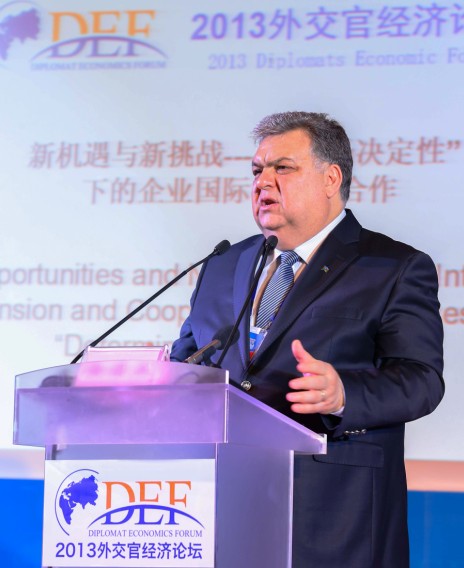

The 2013 Diplomats Economic Forum (DEF) was held at Fengda International Hotel, Beijing Economic-Technological Development Area (BDA), on Dec 14.
 |
|
Azerbaijan's Ambassador Latif Gandilov makes a speech at the forum in Beijing, Dec 14. [Provided to chinadaily.com.cn] |
The forum focused on "new opportunities and new challenges—international expansion and cooperation of enterprises under the ‘market-driven world’."
Participants had in-depth discussions about how to improve Chinese enterprise competitiveness through international expansion and cooperation under the trend of economic globalization.
As a diplomatic platform for private economy, the DEF has become the epitome of China’s diplomatic policy change. The country has begun to pay equal attention to both domestic and overseas interests, placing equal importance on soft power and hard power. China not only adapts to international systems and orders but also tries to adjust them. It has advanced a diversity of diplomatic forms.
Since the reform and opening-up policy was implemented more than 30 years ago, Chinese diplomats with special government backgrounds and resource advantages have provided human resources, communication channels and project opportunities for Chinese enterprises in overseas markets. They have promoted economic and trade cooperation and cultural exchange between China and foreign countries.
The Sino-Belgium Innovative Technology Industry Park is a project that benefits from the DEF. The park is financed by Huayong Investment Group and is located in the science and technology park of Katholieke Universiteit Leuven, Wallonia, Belgium. It is the first overseas technology enterprise incubator project created by China.
The forum has done well to enhance information transparency, improve communication efficiency and integrate resources.
The DEF aims to create a high-end brand and develop a think tank for the internationalization of Chinese enterprises in hopes of creating a “diplomats economy” 2.0 era in China.